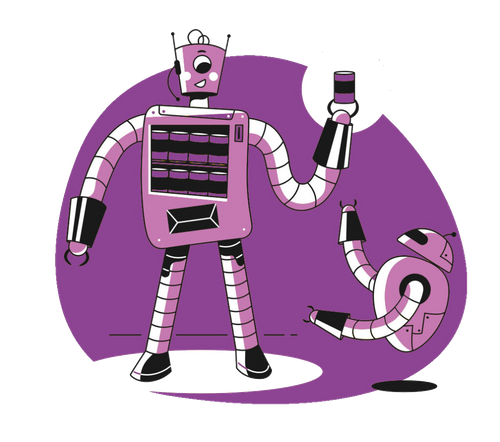The Fourth Industrial Revolution is about a rapidly changing future.
A lot gets said about the fourth industrial revolution (4iR). In most literature, 4iR is about robotics and artificial intelligence. A world of augmented reality and low cost production. Accessible technology that is low code and no code. It is about job loss and automation. The lack of privacy and big data. But more importantly, it is about the rapid availability and constant evolution of technology and opportunity.
This rapid evolution means our expectations are constantly challenged. We must consistently rethink our vision of the future. This speculation also doesn’t really give parents or educators much guidance on how to prepare their children.
As a result, the future is unpredictable.
Any variety of scenarios for the future may become true. No one is really sure what the world of work will look like in 30 years time. What we know is our children will need a different set of skills to thrive in the new world technology creates.
The Institute for the Future, a California-based think tank, has projected that 85% of the jobs that will exist in 2030 haven’t been invented yet. This is incredibly nerve-wracking. We really don’t know what the future is going to look like for the first time in modern history. How can we ensure our children can survive and thrive in this unknown future? Can we prepare them for a world that isn’t even in our imaginations?
We need to give our students strong foundational skills that help them thrive in the face of any challenge.
Our world of work has historically rewarded specialization. Therefore, success meant being an expert with deep knowledge. Consequently, traditional education has promoted the idea of learning more about less. This won’t fly in the new economy. For example, expertise in coding C++ and robotics may be helpful but it is a very narrow and one-dimensional view of the future. Focusing our students on a small selection of skills would be a disservice to their future. This is why the 4th Industrial Revolution demands a different model for education.
The 4C’s are the foundational skills of the future.
Creativity, Communication, Collaboration, and Critical Thinking, collectively the 4C’s, are the skills our students need in an uncertain world. These are the skills that encourage students to think outside the box. Explore new opportunities. Collaborate across geography. Venture outside standard academic disciplines. And be resilient.
At Ayara, we teach the 4C’s to students through applied curriculum, so they can confidently master these skills while changing their world for the better.

